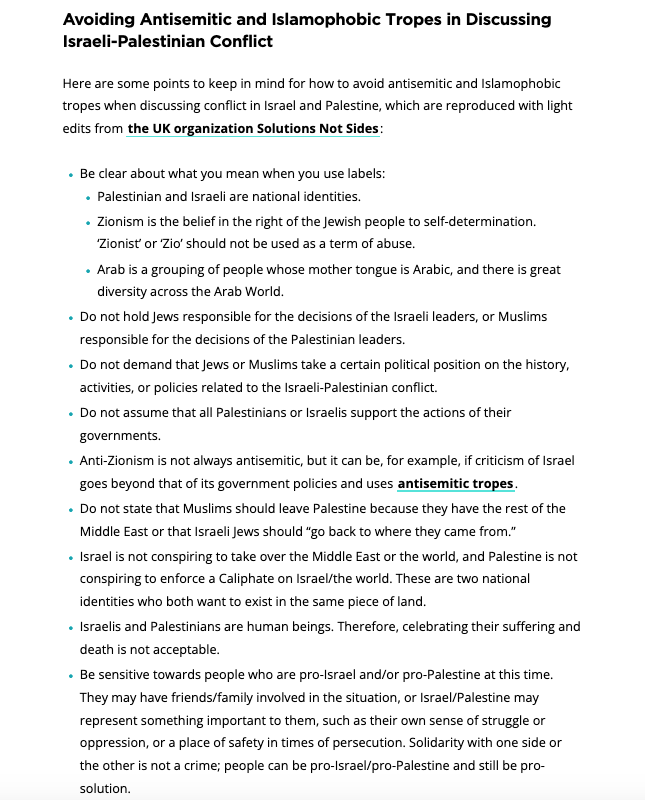Finds for Writers

Most Fridays the Practicing Writing blog shares writing and publishing resources, news, and reflections to peruse over the weekend. But it’s been an excruciating week for so many of us. And frankly, I’ve paid next-to-no attention to garden-variety news from the writing and publishing spheres.
On Wednesday, however, I received an email from Facing History and Ourselves, a Boston-based global nonprofit organization that I’ve admired for many years. The email introduced a “mini-lesson” titled “Processing Attacks in Israel and the Outbreak of War in the Region.”
The resource isn’t perfect. (What resource is?) But one of its segments impressed me as something that, though intended for educators and students, could be clarifying for writers as well, in our work and in the rest of our lives. It’s a section titled “Avoiding Antisemitic and Islamophobic Tropes in Discussing Israeli-Palestinian Conflict.”

- The Writer magazine has just published Toni Fitzgerald’s fairly comprehensive overview of the current litmag landscape.
- I received a lovely email this week from a youth services librarian and educator who has been consulting this site in a workshop that she is running for young writers. Among other things, she alerted me that one of the young people she’s been working with had located another useful resource page for those who want to become published authors. They thought that I might want to share it with all of you. So I am!
- On the subject of publishing and writing careers, here’s a piece that’s going viral, as the kids say: “A Dirty Secret: You Can Only Be a Writer If You Can Afford It” by Lynn Steger Strong.
- Yes, I know that February has an extra day this month. I’ve gone ahead and distributed the March issue of The Practicing Writer anyway. If you’re a subscriber, please check your email. If you’re not (yet) a subscriber, you’ll find the latest issue (and earlier ones) over on Substack.
- And of course, there’s a fresh batch of Jewish literary links up today on the My Machberet blog. (Shabbat shalom!)
Have a wonderful weekend!

Thanks always even though I haven’t time too read all your suggested pieces–
Elisavietta Ritchie
Thanks for the encouragement
About…The Writer and Dirty Secret articles. Wow! Would have missed those without you.
Wow. Dirty little secret indeed. One of the things that occurred to me while reading this article is that the economic circumstances required to have the freedom to write are also shaped by race and culture and gender. There are so many single moms out there, who are supporting their kids, and I imagine that statistically, women of color may be more likely to have additional economic obstacles that impede their ability to carve out writing time. Then, we think of the generally low percentage of writers who are well compensated, including those with teaching gigs that may be per diem or adjunct.
How can we as a society take the stance that writing is important yet do so little to support writers in a meaningful way? IDK. Is the problem the publishing industry? Maybe. I had thought that
things would change for the better with online markets but I’m not sure things have improved.
For example, we still have inequities in publishing related to gender and race. And like so many other things, writing has become a commodity to the point that it’s easier to get paid writing
generic content for the web than a good short story or poem. The sharing of story, in whatever form, is a uniquely human endeavor. It is not simply a product for consumption. And yet, as writers we are told we must market ourselves effectively if we want any degree of success. Until we
shift our thinking about the true societal value of story in the human equation, writers will continue to struggle for fair pay and creative respect.
Yes, there’s a lot to consider in that “Dirty Secret” piece, in particular.